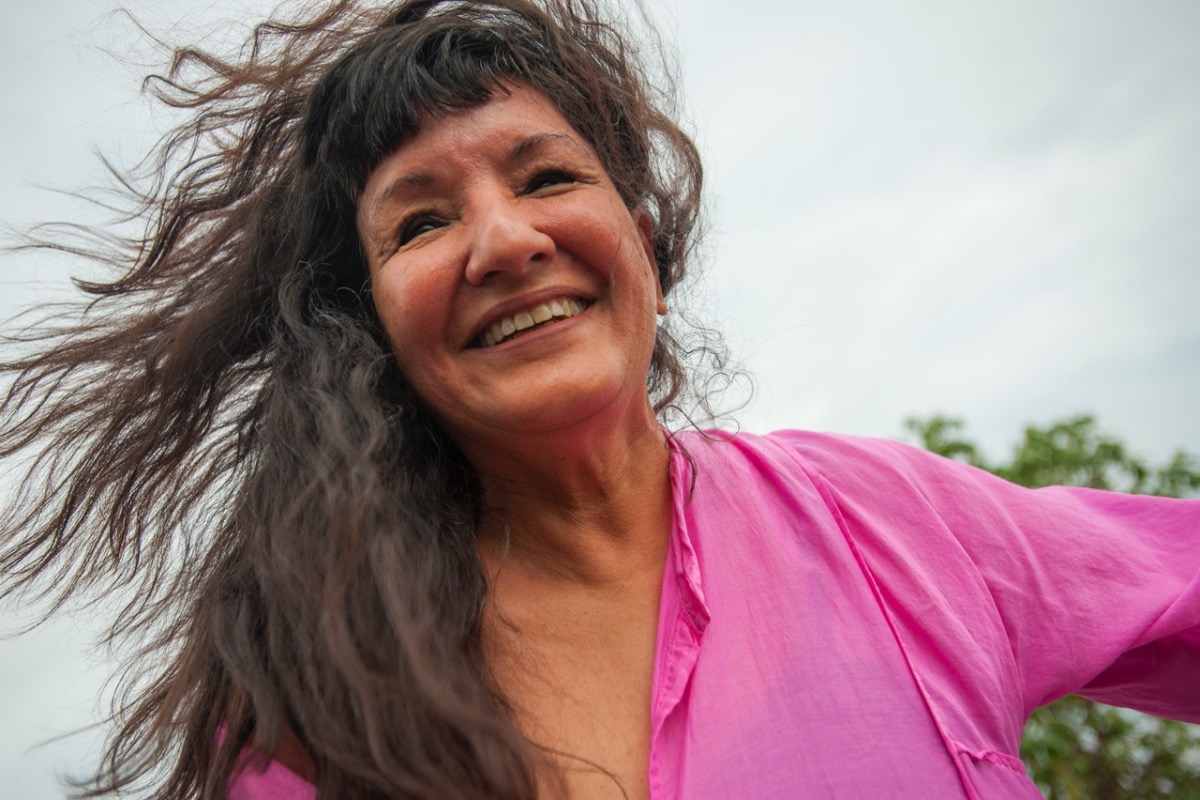On September 13, Sandra Cisneros released her latest poetry collection, Woman Without Shame. In the following interview, writer and director Manuel Aragon chats with the Chicago-born author and poet —recipient of the 2015 National Medal of Arts and the 2019 PEN/Nabokov Award for Achievement in International Literature— about her latest work, aging, and how her work has changed over time.
This interview has been edited for clarity and length.
How are you doing? It’s been a while year since we spoke—when your last book, Martita, I Remember You, was about to come out.
Oh, yes, that’s right. You’re gonna think that I have a book every year, right? But it’s only these two books. And when there are two years of a pandemic, you can actually finish things.
How did this collection come to life?
Well, you know poetry—it’s a very different process than anything else I write. Everything I write, I’m very slow. It’s hard for me to see when I write poetry if it’s done, and if it’s any good, unless I put it to sleep for several months, weeks, or years. Decades in some cases.
I’ve been writing poetry for the past 28 years, but I write all of the genres, and do many things at the same time. I draw, write little snippets of things, and I don’t know what they are until they just become something. So there are things in different fetal stages that I’m working on all at the same time.
If you’re working on all sorts of writing, how do you know when it’s a poem as opposed to some other piece of writing?
I generally know when a poem is a poem, but it can be hard to know if it’s any good. That’s why I rely on friends for general advice. For this collection, my agent Stuart Bernstein and my editor John Freeman were essential.
Like you, these poems have lived multiple lives, lived in other places. “You Better Not Put Me In a Poem” was also in Freeman’s Biannual years ago, right?
Well, you think it was uncomfortable for you? What about me? That’s how you know that it’s a good poem: if it doesn’t flatter me and takes me to a place of discomfort, then I know that I’m onto something. (But) if it’s just (me) being silly or outrageous. No, it can’t have an ego.
You’ve got to follow the poem, and you don’t like where it takes you, you don’t like what it shows you about yourself. Sometimes you think you’re writing about someone else and, inevitably, you’re in the poem, whether you want it or not.
And I learned a lot writing that poem—I think the strongest poem I’ve ever written.
One of the things that you discuss through your poetry in this latest collection is how we age. There’s a series of four poems on aging. As a culture, we don’t want to think that we’re aging or growing, or changing. Why did you want to write about this?
Well, you have to embrace it. What’s the alternative: to look foolish, you know?
So I feel like there’s this conspiracy that people don’t talk about the universal truths about aging. There are things that I wish people had shared with me, people in my life, in humanity in general, that we don’t read about. And I just feel like what’s happening to my body, if I had known better, I might not have invested in such expensive cowboy boots that weren’t gonna fit me 10 years later.
Don’t buy those cowboy boots thinking they’re going to last you until you’re 80 unless they’re a half-size bigger. We’re not told that our body is going to shapeshift and we’re not gonna have the same shoe size and forget about our bra size. That’s gonna change, go up and down your entire life.
There are all these things happening that no one tells you about, and I wonder why my mother didn’t tell me or my friends. Or my mentors, you know—nobody told me these things. I find it funny, and I write about it and I try to write about it with humor because it’s the alternative.
Writing as a process can reveal universal truths. What do you hope to share through your work?
Vulnerability. And discomfort. And we need to voyage to those places that cause us discomfort. We have to walk through that discomfort to transform it into illumination. That’s what poetry does. And that’s why it’s essential in these violent, polarized times.
***
Manuel Aragon is a Latinx writer, director, and filmmaker from Denver, Colorado. He is currently working on a short story collection, Norteñas. His work has appeared in ANMLY. His short story, “A Violent Noise,” was nominated for the 2020 PEN/Robert J. Dau Short Story Prize for Emerging Writers. Twitter: @Spacejunc



